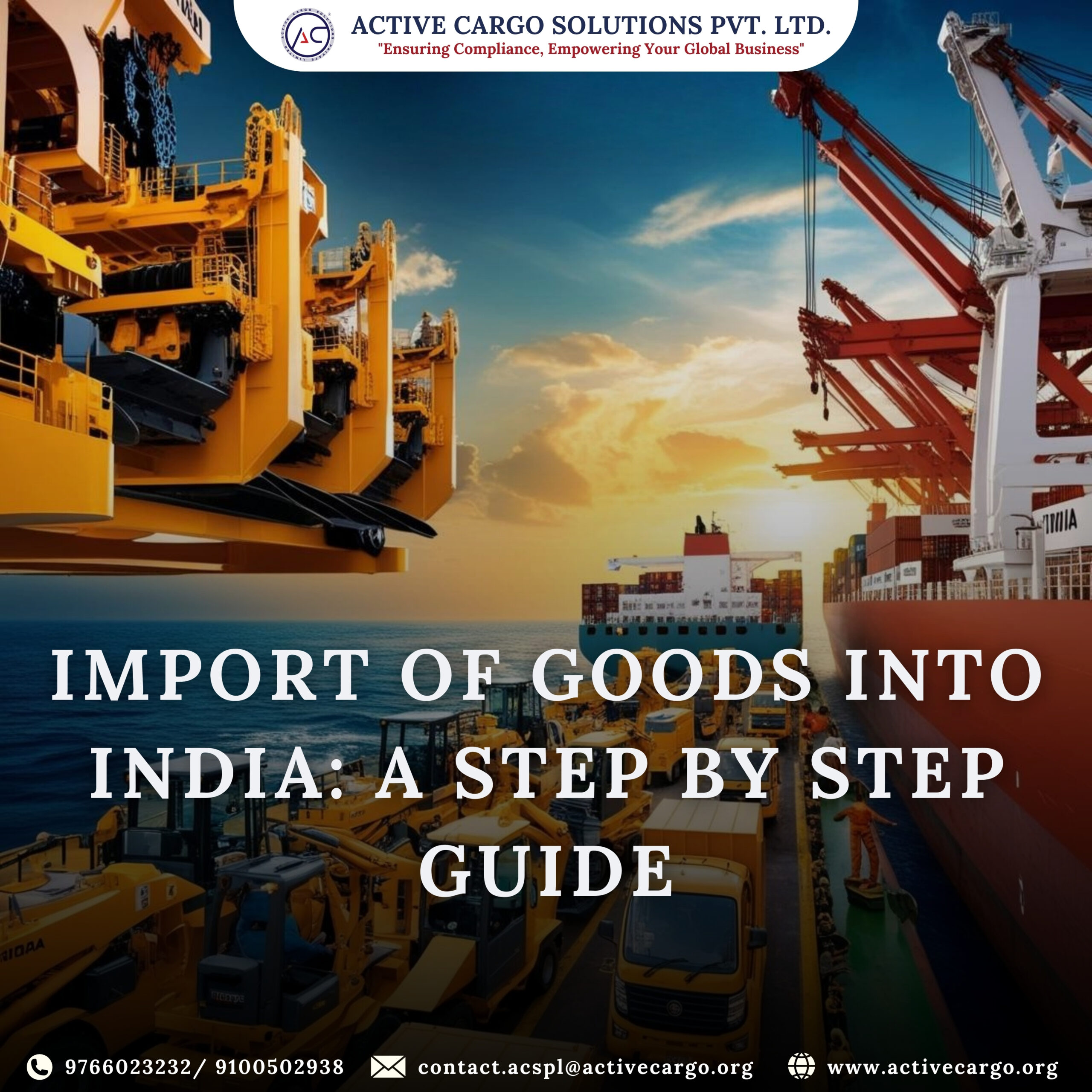Importing goods into India can open numerous growth opportunities for businesses, but it involves navigating through complex procedures and regulations. This comprehensive guide will clarify every crucial step, ensuring a smooth and compliant import experience.
Step 1: Familiarize Yourself with India’s Import Regulations
India’s import policies are governed by several key regulations:
- Foreign Trade (Development and Regulation) Act, 1992
- Foreign Trade Policy (FTP) 2023 (Official DGFT Site)
- Customs Act, 1962 – Governs import duty and clearance procedures
- Goods and Services Tax (GST) Act, 2017 – Regulates IGST on imports
Understanding these policies helps businesses anticipate requirements and avoid compliance-related disruptions.
Step 2: Obtain Your Importer Exporter Code (IEC)
An Importer Exporter Code (IEC) is mandatory for businesses importing goods into India. This unique 10-digit code issued by the Directorate General of Foreign Trade (DGFT) is essential for customs clearances, transactions, and international trade documentation.
How to Apply for an IEC Code:
- Visit the IEC Registration Portal
- Fill out the online application with required business details.
- Upload necessary documents (PAN card, Aadhaar, company registration documents, bank details, etc.)
- Pay the application fee (approx. ₹500).
- Receive IEC approval within 10-15 days.
Step 3: Classify Your Goods Using ITC-HS Codes
Accurate product classification under the Indian Trade Classification – Harmonized System (ITC-HS) is crucial. It determines applicable duties, import licensing requirements, and regulatory compliance.
- Find ITC-HS Codes: Indian Customs Portal
- Products are classified under an 8-digit HS Code, which influences taxation and trade restrictions.
Step 4: Verify Import Licensing and Restrictions
While many goods can be freely imported, certain categories require licenses or have restrictions imposed by regulatory authorities:
- Restricted Items: Require specific licenses from DGFT (e.g., certain chemicals, electronic waste).
- Prohibited Items: Banned for import (e.g., narcotics, counterfeit goods).
- Free Import Items: Do not require a special license.
- Check Product Restrictions: DGFT Import Policy
Step 5: Comply with Product-Specific Regulations
Certain categories, such as food items, pharmaceuticals, electronics, and chemicals, must meet additional regulatory compliance:
- Food Imports: Regulated by the Food Safety and Standards Authority of India (FSSAI).
- Pharmaceuticals: Must comply with Central Drugs Standard Control Organization (CDSCO) norms (CDSCO).
- Electronics: Need a Bureau of Indian Standards (BIS) certification (BIS).
Step 6: Essential Documentation for Importing
Proper documentation significantly reduces delays and additional costs. Essential documents include:
- Bill of Entry: Declaration of goods to customs authorities.
- Commercial Invoice: Details transaction between importer and exporter.
- Packing List: Lists detailed contents and packaging.
- Bill of Lading/Airway Bill: Transport documents proving shipment.
- Insurance Certificate: Ensures coverage for shipment risks.
- Import License (if applicable): Required for restricted items.
- Letter of Credit (L/C) or Bank Remittance: Proof of payment terms.
Step 7: Understanding Customs Duty & Taxes
Import duties vary based on goods classification, origin, and applicable trade agreements. Components include:
- Basic Customs Duty (BCD): Varies per ITC-HS code.
- Integrated Goods and Services Tax (IGST): Applied on CIF (Cost + Insurance + Freight) value.
- Social Welfare Surcharge: Additional tax on BCD.
- Anti-Dumping Duty: Applied if applicable based on product origin.
- Customs Handling Fee: Processing fee for customs clearance.
- Calculate Import Duties: Custom Duty Calculator
Step 8: Choosing the Right Logistics and Customs Broker
A knowledgeable logistics and customs partner ensures smoother customs clearance, compliance with regulations, and efficient cargo handling.
How Active Cargo Solutions Can Assist:
- 30+ years of expertise in Customs Clearance and Freight Forwarding.
- Comprehensive support from documentation to delivery.
- Handling of restricted or regulated items with expert guidance.
- Ensuring cost-efficient freight and transport solutions.
Why Choose Active Cargo Solutions?
Navigating the complexities of importing can be daunting. At Active Cargo Solutions Pvt. Ltd., we simplify your import process, ensuring compliance and efficiency at every step.
Email: contact.acspl@activecargo.org
Get in Touch: Active Cargo Solutions
Call us: +91 91005020938 | 9766023232 | 9930934477
